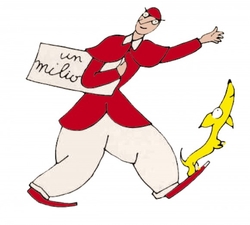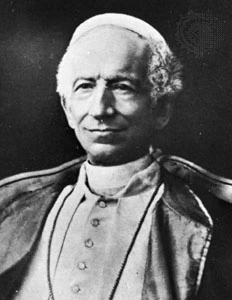Daily Archives: July 9, 2011
“Matthew, Mark, Luke, John”: A CTS Vintage Booklet
From the Lux Occulta blog, a site with an almost inexhaustible (and growing!) collection of old Catholic booklets from the times when Catholicism was taken seriously, “Matthew, Mark,Luke,John”, a rather impressive work with a telling subtitle: “Were they fooled? Did they lie?”
This booklet is very unusual in that whilst other booklet of past ages (this is from 1945) generally take some time to get to the point, this one starts abruptly with a dialogue between an imaginary atheist and the author. The booklet has several themes unfolding in rapid (and never boring) succession. I find the most important the following:
1) humans are not always driven by logic. Once an opinion is consolidated and the emotional investment is big enough, truth will be discarded in whatever way rather than being accepted because logically invincible. I never understood how protestant throw gospel verses at you, but they never cut off their arm when it offends them. If every verse is enough to sustain an argument, go get the machete…..
2) the martyrdom is otherwise inexplicable. People who mock the “legends” of Christ’s life fail to explain how so many people from all walks of life would gladly die, or risk death, for a legend. I don’t know many urban tales able to effect the conversion of roman centurions (well-known as very smart people), prestigious members of the sinhedrin, and rich tax collectors. These were people who held their job or position because considered highly intelligent, reliable, efficient, or trustworthy.
3) there was no incentive to conversion: so these people not only started to believe in legends; they were ready to die for it. More and more with the time.
4) the facts of the Gospel were not questioned by contemporary Jews. There is no record of such in Jewish sources. It is obvious that Jesus could only have been put on trial if he had had a growing number of followers; many of his miracles were very public; you can’t fabricate a public reputation of miracle-making on miracles no one has seen, and denied by the religious leaders. But heal ten lepers at the same time, and that will be something impossible to deny or silence. Many people claim to be God, but they just don’t go around healing lepers. That’s why instead of starting a new religion, they are in mental health structures. In the case of Jesus, the religious leaders preferred to accuse him to operate miracles through demons rather than deny miracles that were under everyone’s eyes.
5) The evangelists contradict one another: never in essential matters, but they’ll obviously have slightly different recollections or direct the attention on different aspects of the same situation. This is actually further proof of their authenticity and truthfulness, as conspirators to a forgery would certainly have cared for total concordance. Four different people, different times, different languages, different audiences, different priorities and, in part, a slightly different remembrance. Exactly as it would happen if you’d ask ten different people to describe the dynamic of a true car accident they have witnessed.
6) It is so difficult to convert a Jew. Today is no different. Jews have an extremely strong sense of belonging to their group. You don’t see many of them converting. To them, religious identity is identity tout court. Still, so many were converted, to the point of becoming dangerous for the religious authorities. Would a deluded fool spreading legends, and mad to the point of self-destruction, persuade so many people to follow him in the same senseless madness? This would, in truth, be a miracle bigger than any one recorded in the Gospel.
7) The Evangelists were rather simple people. So let us recapitulate what happened according to some sceptics: a small bunch of fishermen creates an astonishing story about the messiah having arrived on earth; they persuade people that this man performed miracles; they elaborate a complicated story about why this messiah did not lead them to prosperity and military power, but rather died a horrible, humiliating death on the cross to atone for their sins; they write four tales during several decades to keep the legend alive; and in the process, they proceed to be almost all killed for the sake of this story, and to cause the death of countless others. All very logical, isn’t it? How come we have not thought about it before…
8 ) There have been no manipulations. It is not possible to construct the Gospels as a later, modified version of some mythical original – and different – version. All authorised Gospels around correspond to extremely old Gospels in the hands of the Vatican. There has been, demonstrably, no “evolution” in the text of the Gospels, the ones we read today being entirely consistent with the oldest versions known. Therefore, we read today the same story the Christians of the I century read; miracles, promises, parables, and all.
As every apologetical work, this booklet will not persuade those who do not want to be persuaded. But it will, I think, be a useful reading for the many people who are a bit confused about the truths of the Gospel or want to be in a position to better defend it.
Mundabor





















You must be logged in to post a comment.